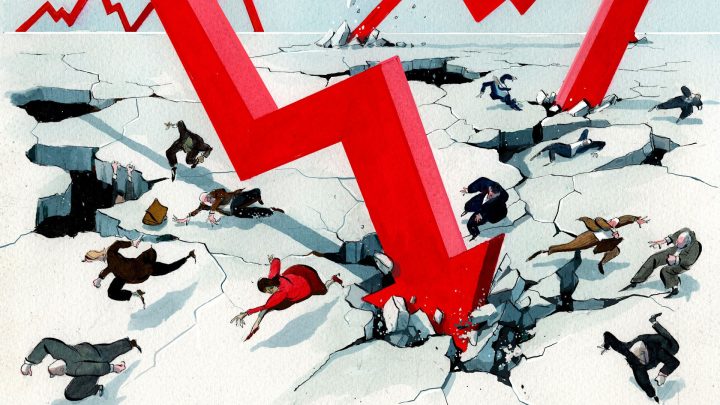Good news – at least for those who hold faith in economic forecasts. The IMF has just eradicated half the recession it forecast, in January, for Britain. At that point, it expected the UK economy to shrink by 0.6 per cent over 2023 – which would have meant Britain uniquely suffering a recession among advanced nations. Today, in its latest World Economic Outlook, the IMF has revised that down to a fall of 0.3 per cent. Moreover, while the outlook for Britain has improved, for a number of other countries it has worsened, most notable for Germany and Japan. Germany is now also forecast to share our recession, with output falling by 0.1 per cent over 2023.
But then who cares, when economic forecasts have proved so wide of the mark in the past? Michael had a point about experts: the IMF had forecast that the UK economy would shrink by between 1.9 per cent and 5.5 per cent within a year of a leave vote – yet the economy grew healthily. Actually, the real world data is looking far brighter than the IMF’s forecasts. The UK has yet to fall into recession, with output growing by 0.1 per cent in the last three months of 2022, in spite of predictions by the Bank of England that we would be deep in negative growth by now.
But there is one aspect of today’s pronouncements by the IMF which does merit comment. It predicts that the current level of interest rates is just a temporary spike, and that once inflation is back under control interest rates will revert to ‘pre-pandemic rates’. That would mean interest rates back at near zero. The ‘natural’ rate on interest in Britain, it claims, is 0.3 per cent. In other words, it is saying that the widely-made assertion that the era of ultra-low interest rates is over is wrong. On the contrary, today’s interest rates will prove to be no more than a blip in a future of otherwise near-zero rates. Its reasoning is that growth rates in advanced economies will remain subdued – partly, it says, as a result of high energy prices as the world transitions to net zero carbon emissions. That is in direct contrast to claims that commitments to achieve net zero emissions will somehow save us all money as the world is incentivised into making technological breakthroughs.
If we really do go back to ultra-low interest rates it could mean a reinflation of the bubble economy. But do we really want to go there? With last month’s banking crisis – which is not necessarily over – we have seen what havoc it can create when investors come to take low interest rates for granted and are then caught out when rates rise even to modest levels. If inflation is rapidly brought under control – and that is a very big if – it might help if central banks resolved never to lower rates below, say, two per cent ever again. That, after all, was the floor through which they had never fallen in the 300 years to 2009.







Comments